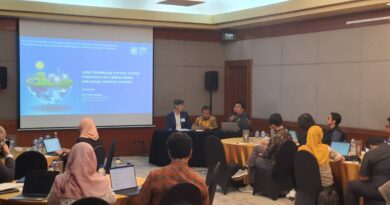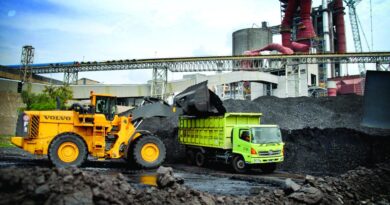Indonesia Aims for Mineral Sovereignty as Key Player in Global Battery Industry
Indonesia – With a focus on downstreaming policies, Indonesia is leveraging its vast critical mineral reserves to position itself as a major player in the global battery and electric vehicle industries. The country’s strategic moves are aimed at boosting its economic growth and strengthening its role in the global supply chain, according to the Ministry of Energy and Mineral Resources (MEMR).
Indonesia’s policy on mineral downstreaming, particularly for nickel, is considered a significant step. As one of the world’s largest nickel producers, Indonesia aims to increase the added value of this mineral by processing it domestically before exporting it. This policy is driven by a ban on raw nickel ore exports since 2020, requiring mining companies to invest in processing facilities. According to the Head of PSDMBP, Agung Pribadi, the country is also focused on in-depth studies of critical mineral potential. “Critical minerals, such as nickel, cobalt, and lithium, are highly needed commodities in the development of future technologies, especially for electric vehicle batteries. With a comprehensive study, it is hoped that new and larger reserves of critical minerals with high economic value can be found,” said Agung.
The government’s efforts have already shown positive results. In 2021, exports of processed nickel products exceeded US$14 billion, a substantial increase from previous years. This demonstrates Indonesia’s shift from exporting raw ore to higher value-added nickel products for the stainless steel and lithium-ion battery industries. Additionally, the country has attracted significant foreign investments. LG Energy Solution, for example, is investing US$9.8 billion to construct a battery factory in Indonesia. This partnership is expected to accelerate the development of battery technology in the country and increase access to the global market. The Ministry of Energy and Mineral Resources is also trying to attract Tesla to invest in the development of an electric vehicle battery supply chain in Indonesia.
Indonesia has also established the Indonesia Battery Corporation (IBC), a joint venture between four state-owned enterprises, to integrate the entire battery supply chain from mining to manufacturing. The development of industrial areas, such as Morowali in Central Sulawesi and Weda Bay in North Maluku, highlights the success of the downstreaming policy. These areas are becoming hubs for processing nickel and other base metals for the battery and stainless steel industries. However, the government also faces challenges in ensuring sustainable development, especially in managing mine waste and environmental impacts.
Indonesia possesses the world’s largest nickel reserves, with 72 million tons, and was responsible for 48% of global nickel production in 2023. In addition, Indonesia has large copper reserves, estimated at 28 million tons, ranking seventh globally, with the Grasberg mine producing around 700,000 tons of copper annually. The country also holds significant cobalt reserves, estimated at 600,000 tons, often produced as a by-product of nickel mining. While Indonesia does not have significant lithium reserves, the government is exploring potential resources due to growing battery demands. Bauxite reserves are estimated at 1.2 billion tons and tin reserves at 2.8 million tons. These reserves position Indonesia as a key player in the supply of critical minerals for the growing green technology sector.
The country’s strategic approach to mineral downstreaming is not only aimed at economic benefits but also at supporting the global energy transition and improving domestic economic welfare.

